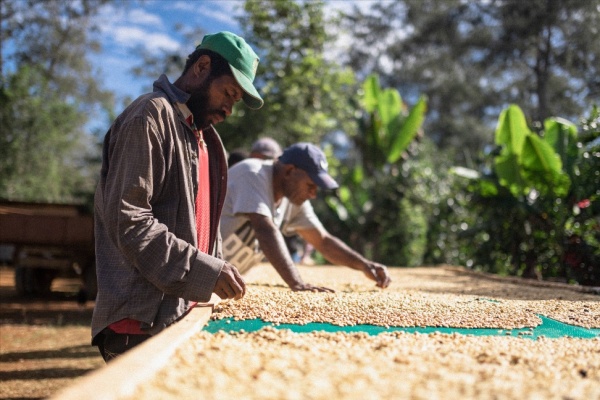
Papua New Guinean coffee farmer Mitchell Ricky says when you buy fair trade you know it has been produced ethically and sustainably.
- Culture
What is Fair Trade?
From good working conditions to sustainable farming methods and stable prices, here’s our guide to fair trade
What is the definition of fair trade? It’s one of those terms that we hear a lot. We know it’s good, but what does it actually involve?
When we choose fair trade coffee at our local cafe, it inherently feels like we’re making a good choice, and when we see ‘fair trade’ on the label of a chocolate bar it adds a little more feel-good factor to the purchase; and that’s where the thought process generally ends. However, there’s a lot more to consider when opting for fair trade products, and on the eve of Fair Trade Fortnight we’ve enlisted the knowledge of Papua New Guinean fair trade coffee farmer Mitchell Ricky to explain what fair trade actually means.
Fair trade is…
“Fair trade is about stable prices, good working conditions, sustainability and fair terms of trade for farmers and workers around the world,” says Mitchell.
What happens when I buy fairtrade coffee?
“When you buy Fairtrade coffee, you know it has been produced sustainably and ethically. This empowers communities like mine to have more control over our futures and protect the environment where we live and work,” explains Mitchell.
How does fair trade benefit farmers?
“For us, coffee is our main income. We rely on coffee production to pay for all our needs – such as school fees, clothing and foods like rice. When the market price for coffee is low (like it is now at 90c per pound) the Fairtrade minimum price of $1.40 per pound is like a safety net for us. It gives us an income that covers our costs, that we can rely on. These issues are similar for many crops like bananas, cocoa, cotton and tea where the market fluctuates and farmers have no control over prices.”
How can I tell if it’s fair trade?
“Look for Fairtrade’s blue and green label. It’s a reminder of how all products have people and communities behind them that have worked hard to get these items to you,” says Mitchell.
“Buying products like coffee, chocolate, tea and bananas that carry the Fairtrade mark is a great way for you to make a big difference to the lives of farmers, workers and their families. It is also the best way for you to help people escape poverty.”
Need more info? Head to Fairtrade Australia
Related: These women are fighting plastic pollution one innovation at a time
